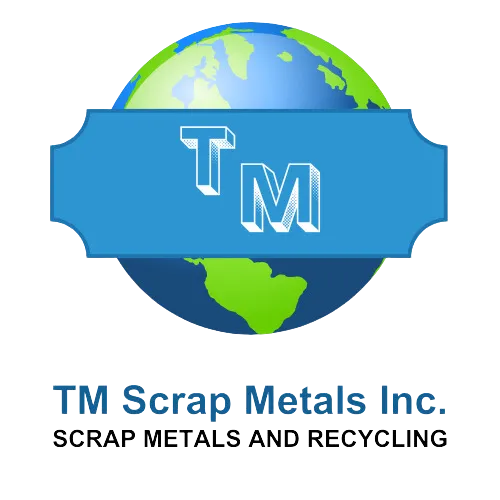Sponsored





Insulated Copper Wire Recycling in Sun Valley
Fast, Fair Recycling For All Types Of Insulated Copper Wire
Looking to recycle insulated copper wire in Sun Valley? Local experts specialize in processing various grades, from household wiring to high-grade industrial cable, offering competitive payouts and eco-friendly solutions. Whether you’re a contractor or homeowner, find trusted Sun Valley recyclers ready to help. Browse now to connect with nearby professionals!
Insulated Copper Wire Recycling in Sun Valley: Why Hire a Professional Insulated Copper Wire Recycling Service
Unlocking the Value of Insulated Copper Wire Through Expert Recycling
The Importance of Insulated Copper Wire Recycling in Sun Valley
Insulated copper wire recycling in Sun Valley is essential as this material is commonly found in homes, commercial buildings, and industrial sites. These wires contain valuable copper wrapped in plastic insulation, making them difficult to process without professional tools and knowledge. Recycling them properly prevents copper loss and reduces plastic waste.
With increased development and tech-driven infrastructure in Sun Valley, large quantities of insulated copper wire accumulate. Professional recycling services ensure that both the metal and insulation are separated efficiently, promoting sustainability and material recovery.
Why Hire a Professional Insulated Copper Wire Recycling Service
Professional insulated copper wire recycling services in Sun Valley offer precision, safety, and compliance. Stripping insulation manually can be time-consuming and hazardous. Experts use advanced equipment to safely and efficiently extract the copper without damaging the material.
These services also ensure you receive fair compensation for your copper based on up-to-date market rates. Their experience and knowledge allow for accurate grading and valuation of wire scrap. Furthermore, they manage recycling operations in line with environmental laws and safety regulations.
Beyond financial benefits, professional recyclers help reduce landfill waste and the environmental costs associated with mining new copper. Their work significantly contributes to the local and global push for sustainable practices.
Finding the Best Insulated Copper Wire Recycling Partner in Sun Valley
Choosing the right insulated copper wire recycling service involves evaluating a company’s reputation, certifications, and customer service. In Sun Valley, look for recyclers who provide transparent pricing, fast response times, and a proven track record of responsible disposal.
Local services offer a strategic advantage due to their understanding of regional recycling programs and infrastructure. They can also support Sun Valley’s environmental initiatives through eco-conscious operations and community involvement.
In summary, a professional insulated copper wire recycling service is essential for efficient, safe, and responsible recycling. It’s an eco-friendly solution that benefits both your bottom line and the environment.
TM Scrap Metals, Inc
Recycling Center

Google: 4.8 stars
Ferrous Metals Recycling, Non-Ferrous Metals Recycling
(818) 771-0510
11092 Tuxford St, Sun Valley, CA 91352
Website: www.tmscrapmetals.com
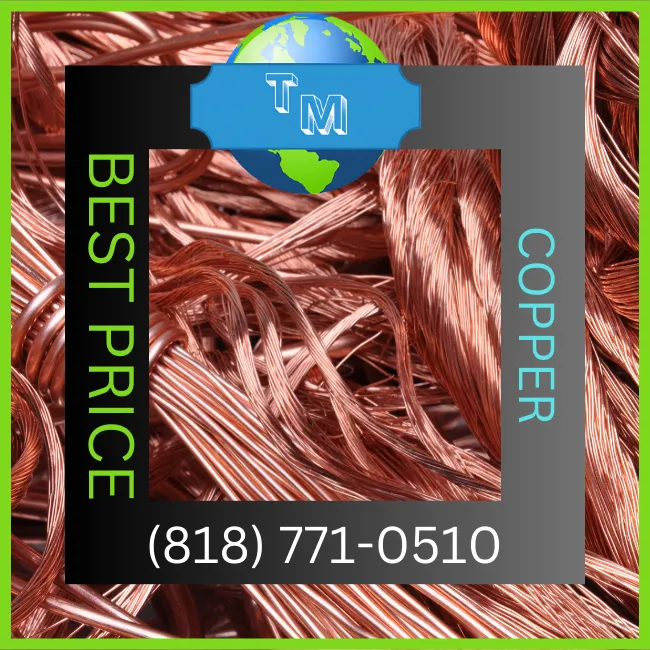
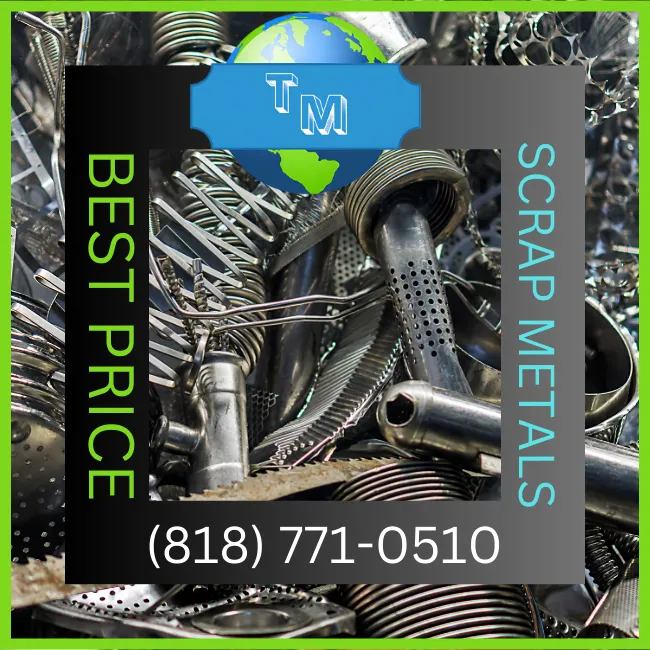
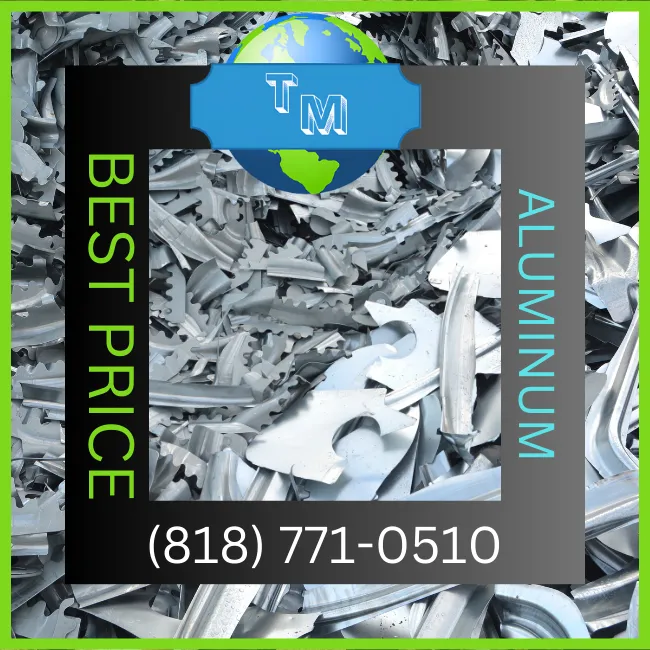
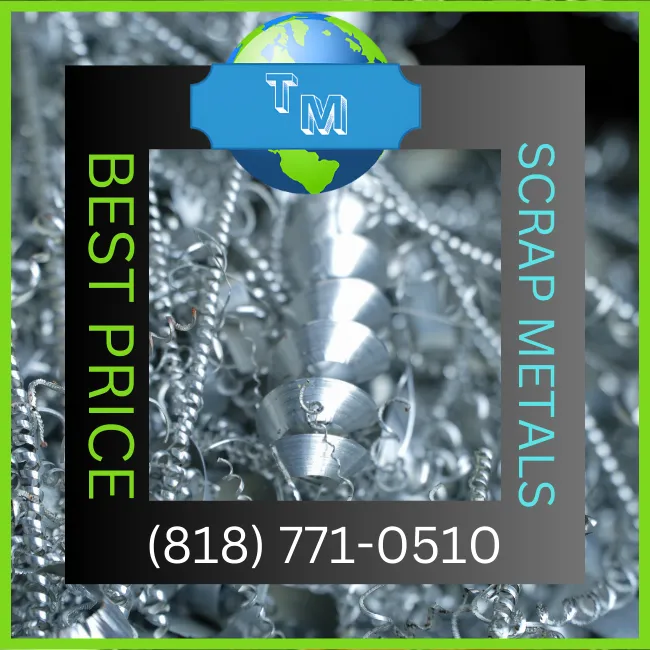
Crown Recycling Services
Google: 4.0 stars
Services: Construction & demolition recycling, wood and yard waste recycling
📞 (818) 768-4214
📍 9189 De Garmo Ave, Sun Valley, CA 91352
🌐 Website not listed
Ecology Auto Parts, Inc.
Google: 4.2 stars
Services: Auto parts recycling, metal recycling, tire recycling
📞 (818) 767-8336
📍 14036 Balboa Blvd, Sun Valley, CA 91352
SA Recycling
Google: 4.2 stars
Services: Scrap metal recycling, ferrous and non-ferrous metal recycling, electronic waste recycling, metal processing
📞 (818) 504-4140
📍 8250 Tujunga Ave, Sun Valley, CA 91352
Kramar Metals
Google: 4.5 stars
Services: Scrap metal recycling, industrial scrap metal recycling, metal processing, buying and selling of various metals
📞 (818) 767-4303
📍 8821 San Fernando Rd, Sun Valley, CA 91352
Insulated Copper Wire Recycling Sun Valley
Get top cash for all insulated copper wire scrap.
Visit our Sun Valley center for insulated copper wire recycling today!
People Also Ask
Insulated copper wire (ICW) consists of copper conductors wrapped in a protective plastic or rubber coating. It’s commonly used in residential, commercial, and industrial electrical systems. ICW is recyclable because the copper inside retains its value and conductive properties. The insulation is removed mechanically or thermally during processing, allowing the copper to be recovered, cleaned, and reused in new manufacturing. Recycling ICW helps conserve resources and reduce the environmental impact of mining.
Preparation involves sorting wires by type and thickness, stripping insulation where practical, and separating high-grade wires like bare bright from lower-grade mixed wires. Manual stripping tools or automatic wire strippers can be used for small volumes, while industrial processors use shredders and granulators. Clean and separated ICW generally yields higher recycling returns. It's important to consult with local recycling facilities for guidelines on preparation and sorting.
ICW is graded based on copper content and ease of processing. Common grades include: Bare Bright (clean, uncoated copper), #1 ICW (thick insulation, high copper content), #2 ICW (thinner copper or mixed materials), and communication wire (low copper yield). Accurate grading ensures appropriate pricing and processing at recycling centers. High-grade wires fetch better market prices due to their higher copper recovery rate.
Yes, stripping ICW can be worthwhile, especially for high-grade, thick copper wires where the metal value significantly outweighs the effort or tool cost. Stripped copper wire, like bare bright, commands the highest prices. However, for thin or low-grade wires, stripping may not be cost-effective. Assess the wire type and volume before deciding to strip, or consult recyclers who may offer competitive rates for unstripped ICW.
Recycling facilities use granulators to shred ICW and separate the copper from insulation through vibration, air flow, and screening. The resulting clean copper granules are melted and cast into ingots for reuse in manufacturing. Some facilities use advanced sorting technologies to enhance efficiency. Proper sorting and preparation beforehand make the process more effective and ensure the highest recovery value.
Recycling ICW offers a strong return, especially for clean, high-grade wire. Prices fluctuate based on copper market rates, wire grade, and volume. Stripping and sorting increase profitability. Businesses that generate regular ICW waste can establish collection systems and partner with recyclers to turn scrap into revenue. It also reduces waste disposal costs and supports environmentally responsible operations.
Sun Valley, CA: The Heart of Scrap Metal Recycling
The History and Evolution of Sun Valley
Sun Valley has a rich history that dates back to the early 20th century. Originally an agricultural area, it evolved into a hub for industrial activities as Los Angeles expanded. The post-World War II boom brought a surge of manufacturing and industrial businesses to Sun Valley, laying the groundwork for the community’s future as a center for scrap metal recycling.
Today, Sun Valley is a bustling urban area with a mix of residential, commercial, and industrial zones. Its industrial areas are home to numerous scrap metal recycling facilities, making it a go-to destination for businesses and individuals looking to recycle their metal waste.
The Importance of Scrap Metal Recycling in Sun Valley
Scrap metal recycling is not just a business in Sun Valley—it’s an essential part of the local economy and the broader effort to promote environmental sustainability. The recycling of scrap metal reduces the need for mining new metals, conserves natural resources, and lowers greenhouse gas emissions. Given the global demand for metals, recycling also helps stabilize prices and supply.
In Sun Valley, the scrap metal industry provides jobs, supports local businesses, and plays a crucial role in waste management. The area’s recycling facilities process thousands of tons of metal each year, turning what would otherwise be waste into valuable resources. This industry’s success in Sun Valley has also fostered a community that understands and values the importance of recycling.
Types of Scrap Metals Commonly Recycled in Sun Valley
- Aluminum: Widely used in packaging, transportation, and construction, aluminum is one of the most recycled metals in Sun Valley. It’s lightweight, corrosion-resistant, and can be recycled indefinitely without losing its properties.
- Copper: Known for its excellent conductivity, copper is highly sought after in the scrap metal industry. It’s commonly found in electrical wiring, plumbing, and electronics.
- Steel: A primary material in construction and manufacturing, steel is the most recycled material in the world. Sun Valley’s facilities process vast amounts of steel, from old vehicles to construction debris.
- Brass: This alloy of copper and zinc is commonly found in plumbing fixtures, radiators, and musical instruments. Brass is valued for its durability and resistance to corrosion.
- Lead: Often used in batteries and radiation shielding, lead is a toxic metal that must be recycled responsibly. Sun Valley’s recycling centers ensure that lead is handled and processed safely.
- Stainless Steel: This corrosion-resistant metal is used in a variety of applications, from kitchen appliances to medical instruments. It’s another common material processed in Sun Valley’s recycling facilities.
The Process of Scrap Metal Recycling in Sun Valley
The process of recycling scrap metal in Sun Valley is both efficient and environmentally friendly. It typically involves several key steps:
- Collection: Scrap metal is collected from various sources, including households, businesses, and construction sites. Many recycling centers in Sun Valley offer pick-up services, making it easy for residents and businesses to recycle their metal waste.
- Sorting: Once the metal arrives at the recycling facility, it is sorted into different categories based on type and quality. This step is crucial for ensuring that the metal is processed correctly and efficiently.
- Processing: After sorting, the metal is processed to remove any non-metallic materials, such as plastic, rubber, or wood. This often involves shredding the metal into smaller pieces to make it easier to handle.
- Melting: The shredded metal is then melted down in large furnaces. The melting process is carefully controlled to ensure that the metal is pure and free of contaminants.
- Purification: In some cases, the melted metal is purified to remove any remaining impurities. This step is especially important for metals that will be used in sensitive applications, such as electronics or medical equipment.
- Solidification: Once purified, the molten metal is poured into molds to create ingots, sheets, or other forms that can be used in manufacturing. These recycled metals are then sold to manufacturers, who use them to create new products.
Environmental Impact of Scrap Metal Recycling
Recycling scrap metal in Sun Valley has a significant positive impact on the environment. By recycling metals, the need for mining raw materials is reduced, which in turn decreases the destruction of natural habitats, lowers energy consumption, and minimizes pollution. The recycling process itself uses less energy compared to producing new metals from ore, resulting in a smaller carbon footprint.
Additionally, recycling scrap metals helps reduce the amount of waste sent to landfills. Metals take a long time to decompose, and by recycling them, Sun Valley helps reduce the environmental strain of waste management.
Economic Benefits of Scrap Metal Recycling
The scrap metal recycling industry in Sun Valley is not just environmentally beneficial—it also brings substantial economic advantages. The industry creates jobs at various levels, from collection and processing to sales and management. This contributes to the local economy by providing employment opportunities and stimulating business growth.
Moreover, recycling metals allows businesses to save on raw material costs. Recycled metals are often cheaper than newly mined ones, which helps manufacturers reduce production costs. This cost-saving advantage can be passed on to consumers, making products more affordable.
Challenges Faced by the Scrap Metal Industry
Despite its benefits, the scrap metal industry in Sun Valley faces several challenges. One of the main issues is the fluctuation in metal prices, which can affect the profitability of recycling operations. Additionally, the industry must deal with the improper disposal of non-recyclable materials, which can contaminate the recycling process and increase operational costs.
Another challenge is the need for continuous investment in technology and infrastructure. As environmental regulations become stricter, recycling facilities must upgrade their equipment and processes to meet these standards. This requires significant financial investment, which can be a burden for smaller businesses.
The Future of Scrap Metal Recycling in Sun Valley
Looking ahead, the future of scrap metal recycling in Sun Valley appears promising. As awareness of environmental issues continues to grow, so does the demand for sustainable practices like recycling. Technological advancements are also expected to play a key role in improving the efficiency and effectiveness of recycling processes.
In addition, the increasing global demand for metals, driven by industries such as construction, automotive, and electronics, will likely boost the scrap metal industry. Sun Valley, with its established recycling infrastructure, is well-positioned to meet this demand and continue its legacy as a leader in scrap metal recycling.
Conclusion
Sun Valley, CA, has established itself as a vital center for scrap metal recycling, contributing significantly to environmental sustainability and the local economy. Despite the challenges it faces, the industry’s future looks bright, with ongoing advancements in technology and an increasing emphasis on recycling. For residents and businesses alike, Sun Valley remains a beacon of responsible waste management and resource conservation.
References: Wikipedia

